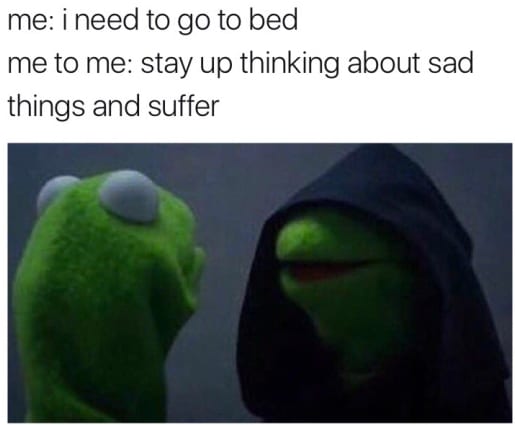Using Tumblr Memes as Coping Mechanisms
- vinathiprasad9
- Sep 19, 2017
- 3 min read
Millennials (people who were born between 1981 and 1997) are constantly being reprimanded by older generations for spending too much time on their phones, for not working hard enough, and for living easier lives than theirs. What older generations fail to recognize is that in our society, with all its social and economic problems, many millennials are suffering from mental health problems, such as depression and anxiety. According to the National Alliance on Mental Illness, more than five million college students in the United States struggle with some form of mental illness, a problem which can be attributed to stress in school, lack of jobs, accumulation of debt, or even the problems of society. Needless to say, we millennials have it pretty tough. However, one way we cope is through memes.
My obsession with the microblogging platform Tumblr began during a very dark time in my life. The transition from high school to college was difficult for me as an introvert being thrown into a completely new environment full of people I had never met before. My social anxiety and insecurity got in the way of my making any friends, so I became a recluse. I had no motivation to do anything except eat and sleep, so of course my grades suffered. I fell into what I in retrospect think was a depressive phase (I was never formally diagnosed). Just as many of the members of my generation do, I coped with the pain by spending the majority of my time scrolling down my endless Tumblr dashboard looking at and reblogging relatable memes like the ones above.
Unlike more popular social media platforms such as Facebook, Instagram, and Twitter, Tumblr is a platform where users feel comfortable enough to speak openly about the problems they face, typically in the form of dark humor and memes. I believe this to be because of how Facebook, Instagram, and Twitter are connected with reality. Users of these platforms often connect with friends they know in real life, and share information and media on these platforms with that audience in mind. According to Alice Marwick, in order to become popular on these platforms, people must emphasize the version of themselves they want the people they know in real life to see. With Tumblr, on the other hand, a user's followers are not usually people they know in real life. Because of this, they might feel more inclined to open up and share their problems, with the assurance that nobody they know will confront them about it in person. Just as Instagram users rely on their images to express themselves according to Marwick, Tumblr users use visual memes.
As another example, memes helped me cope with the stress of the 2016 presidential election. Last year, liberal millennials around the USA, including myself, felt uneasy about the state of the country. Minorities who would be affected by Donald Trump's outrageous plans felt unsafe in a country where people questioned their loyalty. During this period of social unrest, my dashboard on Tumblr experienced a flood of memes pertaining to the election, such as the ones below, and once again, Tumblr became a place for me to find and relate to people online who were feeling the same level of unsafeness. Together, we could all find the humor in our absurd situation, and reduce dangerous ideas to things to laugh at.
How exactly memes function as a coping mechanism is hard to put into words. In a way, using memes to trivialize our own problems and concerns can make them easier to move past. In my experience, scrolling through my dashboard and seeing so many memes joking about how we "crave the sweet release of death" or that "this country is over" makes it seem like a much smaller problem that can be overcome with less difficulty. Memes also function as a coping mechanism because seeing that other people posted helps me realize that I am not alone in feeling a certain way. No matter how niche my feeling is, I can always find an obscure meme that expresses exactly what I feel. As Emma Hope Allwood put it in this article, "memes came to express our shared experiences – no longer a guilty or somewhat juvenile pleasure, they put a voice to our deepest thoughts (via a hooded Kermit), translated our rage through the clenched fist of an animated aardvark.” In a society where millennials are forced into situations that negatively affect their mental health, memes are our way of telling others that we're all in this together.















Comments